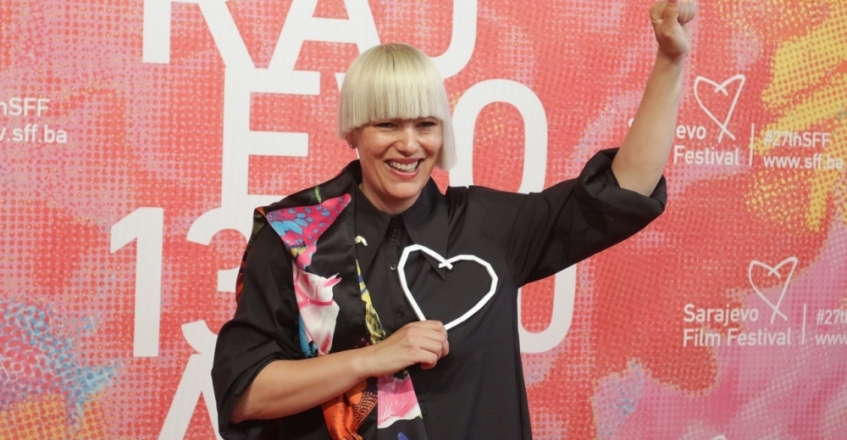Objave
Marta Popivoda: Art always produces ideological consequences
Marta Popivoda is a filmmaker, video artist, and researcher living and working between Belgrade and Berlin. Her first feature-length documentary, YUGOSLAVIA, HOW IDEOLOGY MOVED OUR COLLECTIVE BODY, had its premiere at the Berlin International Film Festival in 2013.
Marta Popivoda is a filmmaker, video artist, and researcher living and working between Belgrade and Berlin. Her first feature-length documentary, YUGOSLAVIA, HOW IDEOLOGY MOVED OUR COLLECTIVE BODY, had its premiere at the Berlin International Film Festival in 2013. Her documentary LANDSCAPES OF RESISTANCE premiered in competition at the International Film Festival Rotterdam in 2021 and won the Heart of Sarajevo for Best Documentary. Her most recent documentary, SLET 1988, premiered in competition at the Locarno Film Festival and at the 31st Sarajevo Film Festival it is being screened in the Competition Program - documentary film.
The audience of the Sarajevo Film Festival knows you as the director of the documentary films Yugoslavia: how ideology moved our collective body and Landscapes of Resistance, as well as the bearer of the Heart of Sarajevo for the second-mentioned film. The topics you have dealt with before - the relationship between the individual and the collective and the intertwining of memory, history and ideology - are still there. You were a little girl in 1988. What are your memories of the last slet (Slet was the Rally of young people of Yugoslavia expressing appreciation and dedication to Josip Broz Tito on the Youth Day, May 25th)?
The memories of the last slet in 1988, which inspired this film and the many years of research into public performances of ideology, come primarily from the film's co-writer, Ana Vujanović, who was 13 years old at the time. My memories in the context of this film are mostly related to the artistic work and activism of Sonja Vukićević – an artist who was a soloist in the last slet, and during the war years of the 1990s, she created politically engaged, anti-regime theater in collaboration with Borka Pavićević, at the Center for Cultural Decontamination in Belgrade. She also performed the play Macbeth ONO in front of a police cordon in January 1997, as a direct support for the student protests. The Youth Day and the rally in 1988 are significant for us because at that time different political forces and ideologies were still fighting on the public stage. This film tells the story of a special moment in the history of Yugoslavia, when a different future still seemed possible.
How much do you, as an artist, find the emphasis on moving the final slet away from ideology and closer to the sphere of art intriguing?
I found it particularly intriguing, but also somewhat poignant, that artists at that time believed that art could exist outside of ideology, that there was something they called “pure aesthetic pleasure” and “purely aesthetic performance”. I am an artist who does not believe in the “purity” of art; art always produces ideological consequences in the context in which it is created. That is why the later work of Sonja Vukićević at the CZKD is significant to me, as she showed during the war years in Belgrade that art and artists must not remain silent about what is happening around them. This is still a very relevant issue today.
Is Sonja Vukićević, once the star of the last slet, and still a lady in excellent shape nowadays, living proof that the individual is more durable and enduring than the collective?
I wouldn't say that Sonja, as impressive as she is, proves the superiority of the individual over the collective. Her strength and endurance are shaped by collective experience - landing, activism, theatre... The individual body is fragile and vulnerable, especially in wars and major social breakdowns. The individual survives only in community; alone and isolated, it can easily be forcibly erased and forgotten.






